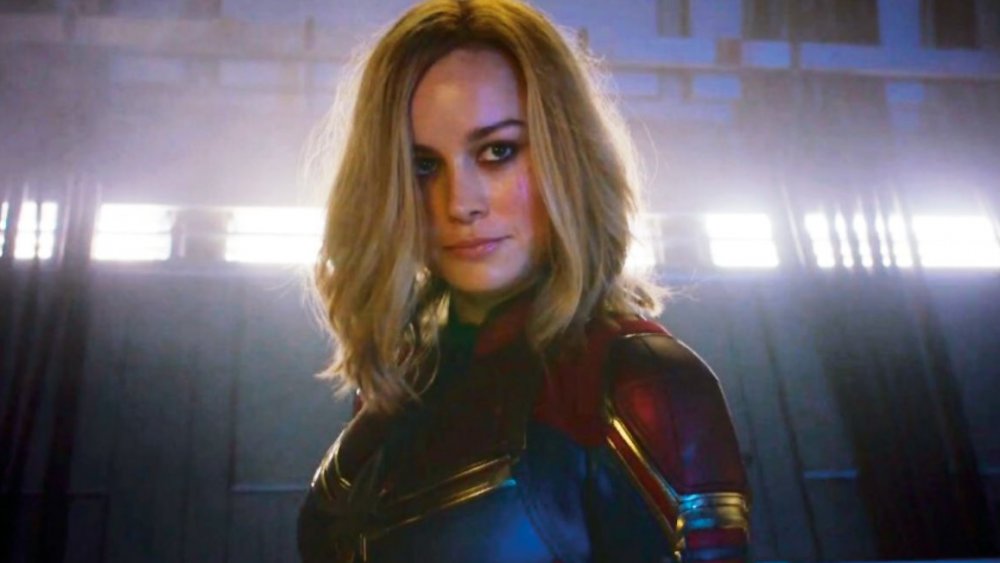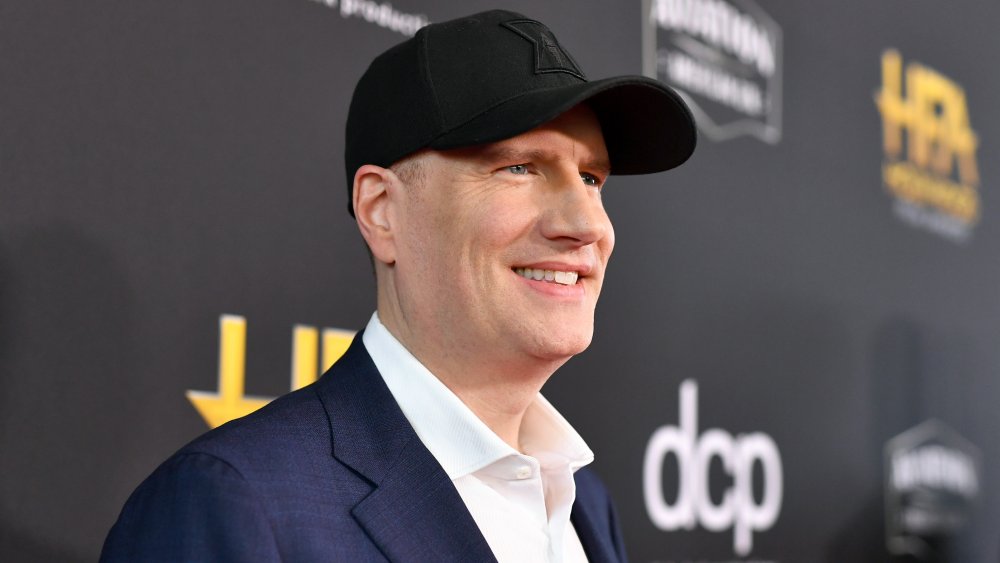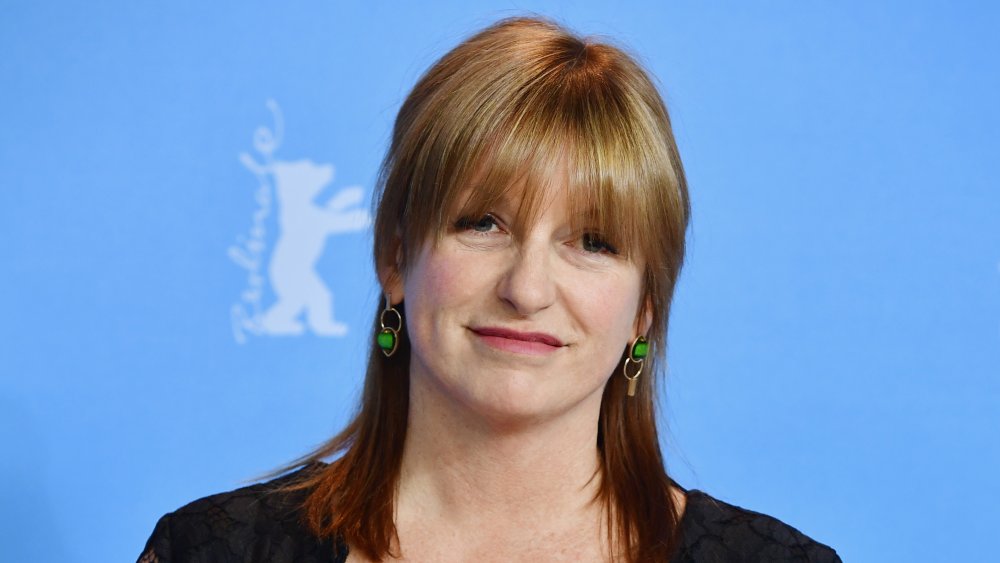Why Kevin Feige Was Once Nervous About A Female-Led Marvel Movie
Sometimes, fighting for your creative vision means putting the job itself under the blade.
Way back in the ancient days of 2015, when Captain America: Civil War was still finishing production, Kevin Feige had made a major, potentially career-altering decision: he was going to take his demand for diversifying the Marvel Cinematic Universe with Black Panther and Captain Marvel to the executive board at Disney and threaten to quit if he didn't get a greenlight to put the films into production. MCU star Mark Ruffalo, who has portrayed Bruce Banner (a.k.a. the Hulk) since 2012, recently opened up to The Independent about a conversation he had with Feige at the time. Feige revealed to Ruffalo that he was particularly nervous about pitching a female-led film since there wasn't much to indicate that Disney executives (or audiences) would support it.
"Kevin Feige told me, 'Listen, I might not be here tomorrow.' And he's like, 'Ike [Isaac Perlmutter, Disney's largest shareholder at the time] does not believe that anyone will go to a female-starring superhero movie. So if I am still here tomorrow, you will know that I won that battle,'" Ruffalo shared.
As we all know, Feige is still here. Back then, he was simply President of Marvel Studios, beholden to both Perlmutter as well as (now-former) Disney CEO Bob Iger. In 2019 — after Black Panther and Captain Marvel individually made a billion box office dollars and the MCU kept the revenue train rollin' through to the end of the Infinity Saga with Avengers: Endgame – Feige was promoted to Chief Creative Officer of Marvel Entertainment. This means he's not simply the captain of the films anymore, but of all Marvel media, undercutting Perlmutter's previous control of final editorial say on the comics end of the corporate equation.
"Winning" almost feels like an underwhelming description of what Feige achieved by standing his ground. The effects of this major executive structure upheaval have yet to be felt in public content as the MCU's Phase 4 is yet to be publicly underway, but let's look at why the situation boiled over as it did, and what it means going forward.
A corporate division divorce
Perlmutter has been involved with Marvel in an executive capacity since 2001, when he rescued the then-failing comics publisher from near-certain liquidation, revived the brand, and eventually initiated the acquisition by Disney. The single instance Ruffalo described in conversation with The Independent wasn't the only alleged ignition point between Feige and Perlmutter. The budget for Captain America: Civil War was also at that time reportedly causing much grief between them, and Perlmutter had been waving off Feige's progress towards releasing any female-centric superhero film for years, since Feige and Marvel Studios answered to Marvel Entertainment directly, not Disney. If you've ever wondered why that Black Widow movie people clamored for never got made when it would have made the most narrative sense for the cinematic universe rather than now, post-Endgame, well, you have some idea.
This friction drove Iger to pluck Feige up from the direct control of Perlmutter and Marvel Entertainment to place him under the jurisdiction Alan Horn, chairman of Walt Disney Studios, instead. "I knew I had to intervene," Iger explained in an excerpt of his memoir in a Variety story about the event. "And so in May 2015, I made the decision to split Marvel's movie-making unit off from the rest of Marvel and bring it under Alan Horn and the Walt Disney Studios. Kevin would now report directly to Alan, and would benefit from his experience, and the tensions that had built up between him and the New York office would be alleviated."
Big business means big stakes and even bigger personalities. It appears Iger's choice to essentially side with Feige will probably be the better choice in the long-term, but all the choices made since 2015 — including the slow dissolution of Marvel TV as Disney+'s star rises — has made for something of a messy divorce.
The difference in Phase 4 of the MCU
You may recall when the Phase 4 slate of Marvel films went public at San Diego Comic-Con in July 2019, the diverse casts received much corporate fanfare. Shang-Chi and the Legend of the Ten Rings. A Blade reboot. A major gay character who will be included in Eternals – a film that also boasts a broadly multi-ethnic cast and another female lead. The change is behind the camera as well, with directors of varying ethnicity and gender. (Only one of the four productions for Marvel Studios in 2020 has a white guy in the director's seat: Matt Shakman, for WandaVision.)
It appears that now, having gotten his way in the most complete terms possible, Feige intends to stomp on the gas in accelerating the presentation of who can be seen as a superhero on film, and who gets to tell their stories. To his credit, Iger might have originally taken Feige on faith with Black Panther and Captain Marvel, but he did it for good reasons, and shows no inclination to slow Feige's roll.
As Iger wrote in his memoir, "Kevin is one of the most talented film executives in the business, but my sense was that the strained relationship with New York was threatening his continued success. We had a chance to make a great movie and to showcase an underrepresented segment of America, and those goals were not mutually exclusive. I called Ike and told him to tell his team to stop putting up roadblocks and ordered that we put both Black Panther and Captain Marvel into production."
That decision is still sowing social and cultural benefits today, and hopefully Marvel Studios will continue to do so for the benefit of all the young people it wants to draw into its cinematic universe.


